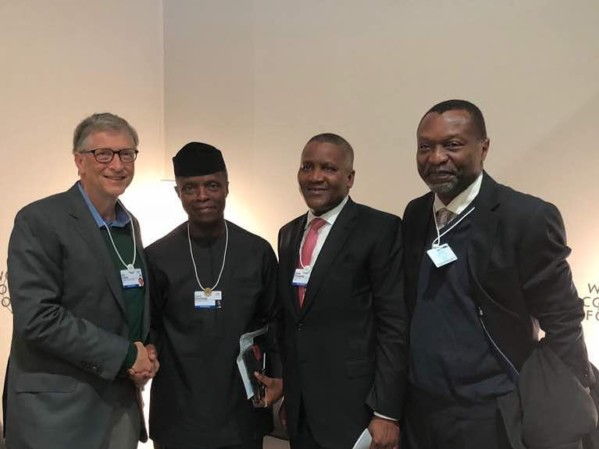The office of Nigeria’s ministry of budget and national planning has refuted suggestions that the world’s second richest man and Microsoft founder, Bill Gates, faulted the federal government’s Economic Recovery and Growth Plan (ERGP).
It said a close reading of his statement shows that the point Gates made was that human capital development should have been explicitly indicated as part of the execution priorities of the ERGP, adding that this was not the same as saying that the ERGP does not address human capital development or that Gates faulted Nigeria’s economic plans, as being erroneously circulated.
A statement by Akpandem James, special adviser (Media) to Udo Udoma, the minister, released over the weekend said ERGP prioritises human capital development.
He said : “The ERGP rests on the three pillars of restoring growth, investing in the Nigerian people and building a competitive economy. The pillar of ‘investing in the Nigerian people’ is nothing other than human capital development, consisting, as it does, of education, health and social investments, and a whole chapter of the ERGP is devoted to this important pillar. Therefore the ERGP indeed prioritises human capital development.

“ The ERGP sets out 60 strategies cutting across all sectors of the economy. Indeed, over one quarter of them (strategies 31 to 47) fall into the category of investing in the Nigerian people and the execution priorities of the ERGP are restoring macroeconomic balance, achieving agriculture and food security, ensuring energy sufficiency in power and petroleum products, improving transportation infrastructure and driving industrialization through SMEs.
“These interventions were chosen because of their potential for fast-tracking economic recovery and expected contribution of the private sector to accelerating growth, which is one of the key principles of the ERGP. In other words, the execution priorities are catalysts for implementing all the strategies in the ERGP.
“These priority areas have cross-cutting potentials which are all focused towards empowering the people through creating jobs and improving their general conditions. In other words, all the areas indicated are underpinned by the emphasis on investing in the people. Every single one of the execution priorities has the people at the centre,”he asserted.
He said human capital development spending has gone up, which demonstrated the commitment of government to improving human capital development at the national level, as the Federal Government has made significant increases in capital allocations in human capital related sectors in the last three years in spite of dwindling revenues.
For instance, he said , capital allocations to education, including Universal Basic Education (UBEC), in the 2015 budget was N91.903 billion, but the allocation was increased to N112.543 billion in 2016; N152 billion in 2017 and N170.79 billion is proposed for 2018 budget.
“In the health sector, while N22.676 billion was provided in the 2015 budget for Capital expenditure, N28.65 billion was provided in the 2016 budget; N55.61 billion in 2017; and N71.11 billion in the 2018 budget proposal.”









